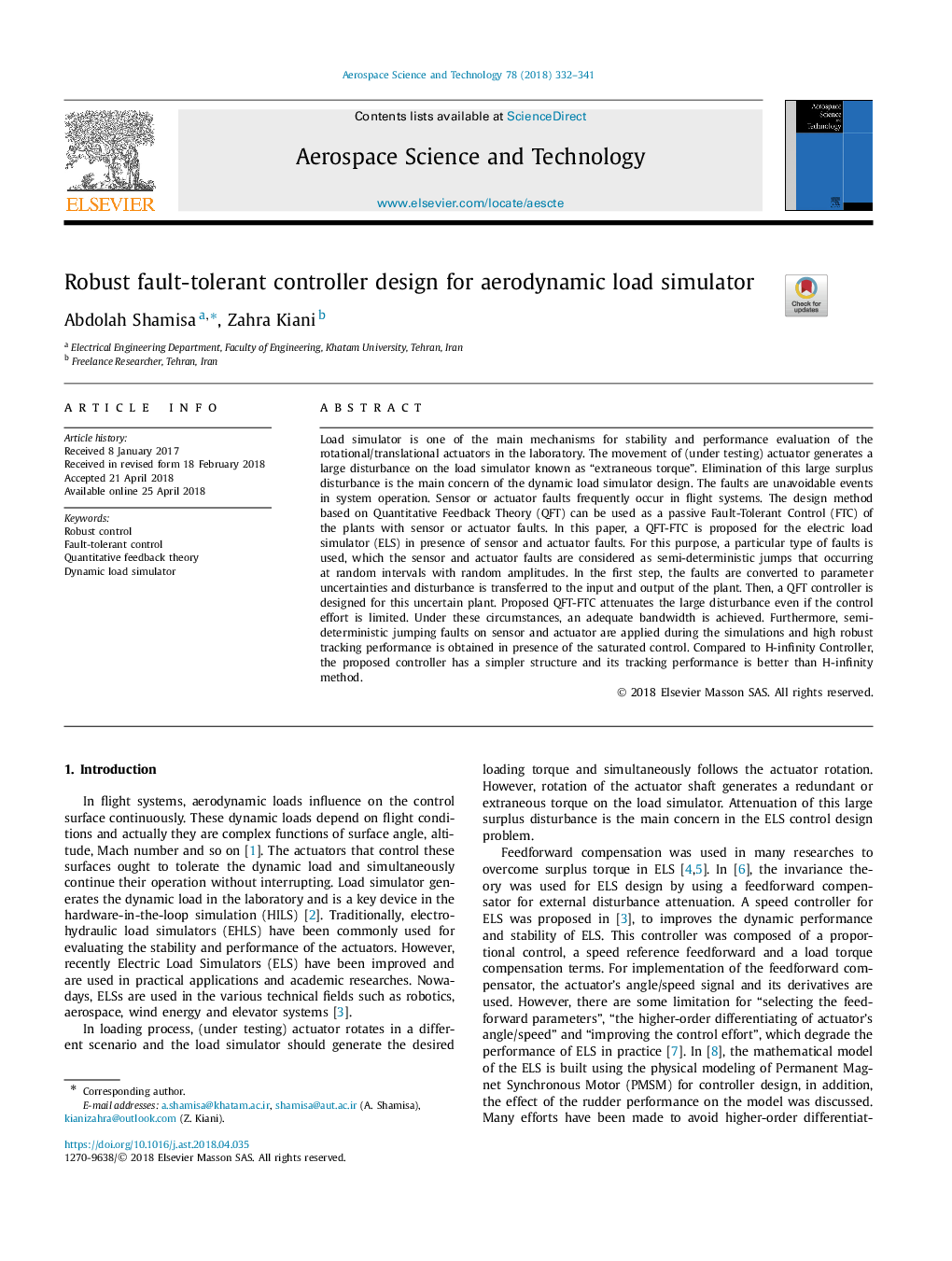| Article ID | Journal | Published Year | Pages | File Type |
|---|---|---|---|---|
| 8057519 | Aerospace Science and Technology | 2018 | 10 Pages |
Abstract
Load simulator is one of the main mechanisms for stability and performance evaluation of the rotational/translational actuators in the laboratory. The movement of (under testing) actuator generates a large disturbance on the load simulator known as “extraneous torque”. Elimination of this large surplus disturbance is the main concern of the dynamic load simulator design. The faults are unavoidable events in system operation. Sensor or actuator faults frequently occur in flight systems. The design method based on Quantitative Feedback Theory (QFT) can be used as a passive Fault-Tolerant Control (FTC) of the plants with sensor or actuator faults. In this paper, a QFT-FTC is proposed for the electric load simulator (ELS) in presence of sensor and actuator faults. For this purpose, a particular type of faults is used, which the sensor and actuator faults are considered as semi-deterministic jumps that occurring at random intervals with random amplitudes. In the first step, the faults are converted to parameter uncertainties and disturbance is transferred to the input and output of the plant. Then, a QFT controller is designed for this uncertain plant. Proposed QFT-FTC attenuates the large disturbance even if the control effort is limited. Under these circumstances, an adequate bandwidth is achieved. Furthermore, semi-deterministic jumping faults on sensor and actuator are applied during the simulations and high robust tracking performance is obtained in presence of the saturated control. Compared to H-infinity Controller, the proposed controller has a simpler structure and its tracking performance is better than H-infinity method.
Related Topics
Physical Sciences and Engineering
Engineering
Aerospace Engineering
Authors
Abdolah Shamisa, Zahra Kiani,
